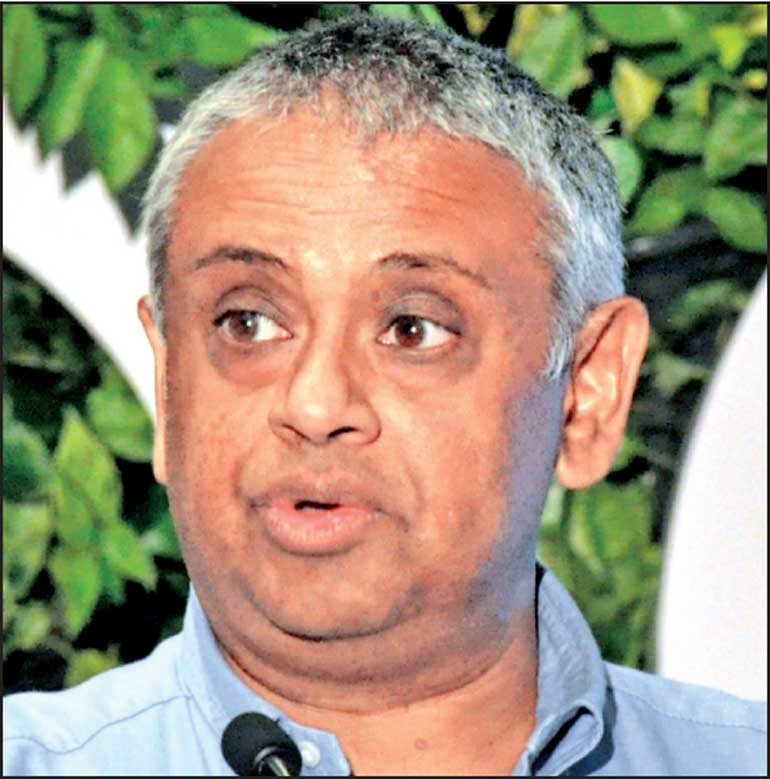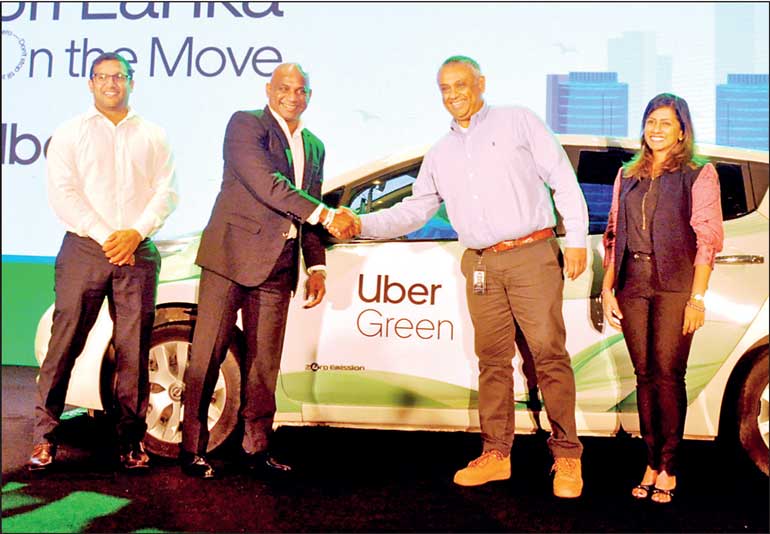Tuesday Feb 17, 2026
Tuesday Feb 17, 2026
Tuesday, 20 August 2024 00:04 - - {{hitsCtrl.values.hits}}

Uber Chief Financial Officer Prashanth Mahendra Rajah

By Darshana Abayasingha
Uber set itself an ambitious global benchmark with its 2040 vision to become a zero-emissions platform across its platform.
Speaking to the Daily FT, Uber’s Global Chief Financial Officer, Sri Lankan-born Prashanth Mahendra-Rajah provided insights into the progress made by the company with its initiative, during the launch of Uber Green in Sri Lanka.
Last month, Colombo Sri Lanka became the 17th city to introduce Uber Green, from 175 cities worldwide where the company has its presence. “Despite global challenges and shifting sustainability commitments from various countries, Uber remains steadfast in its goal. We’ve not wavered on our path to that,” Mahendra-Rajah affirmed. In 2020, Uber’s CEO announced a commitment to achieving zero emissions across its global platform. “Our flagship product to deliver on this promise is Uber Green”.
Uber Green will incorporate both hybrid and electric vehicles in Sri Lanka, although Mahendra-Rajah acknowledged potential hurdles due to current import restrictions.
“Given some of the import restrictions now, that will be a challenge we will need to work through in the coming years,” he noted. The decision to launch Uber Green in Sri Lanka is part of Uber’s broader strategy to roll out its sustainable initiatives globally. Mahendra-Rajah emphasised, “If we’re committed to doing this globally, we have to launch it in all of our countries.”
He pointed out that Sri Lanka has a pool of drivers with access to hybrid and electric vehicles, making it an ideal location for the new initiative. The choice also reflects a broader consumer trend. “Globally, we’ve seen that consumers want to do their part to help the planet. When given the option, they prefer green options,” Mahendra-Rajah explained.
“The growth of our Green products globally is meaningfully faster than the overall Uber product portfolio,” he said. This trend extends to Uber’s food delivery segment, which also aims to reduce unnecessary plastic packaging by introducing more sustainable options for merchants.
As for market trends, Uber’s mobility and delivery platforms are experiencing substantial growth. Mahendra-Rajah revealed, “Our mobility business is running at $ 80 billion annually, with growth rates north of 20%.”
Uber’s expansion strategy includes diversifying its services. In Sri Lanka, groceries have become one of the fastest-growing platforms. “Our grocery service launched about a year ago, and our Uber One membership has been a game-changer,” Mahendra-Rajah noted. The membership offers discounts across rides, food delivery, and groceries, creating a comprehensive ecosystem that enhances customer engagement and reduces acquisition costs.
Uber’s technology-driven approach has also significantly impacted the market. “Investments in safety technology have been crucial in driving the adoption of our services,” Mahendra-Rajah stated. Features like real-time route tracking and safety measures for female passengers have played a role in increasing the platform’s appeal and usage.
Looking ahead, Mahendra-Rajah expressed hopes for supportive policy changes in Sri Lanka. “We are working with the government on finding the right solutions for allowing more vehicles into the country, which is crucial for our growth and our zero-emission goals,” he said.